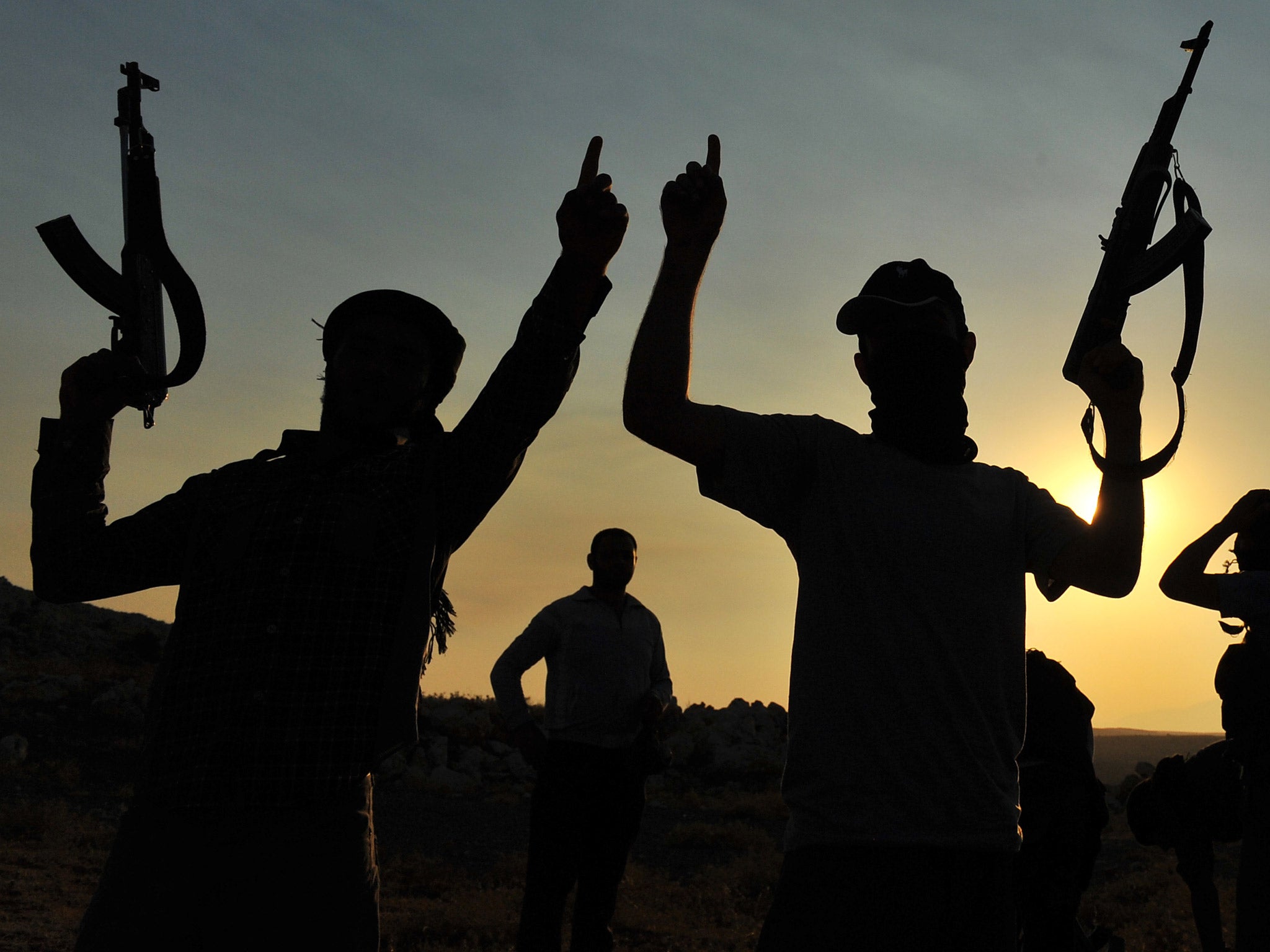G8 summit: Europe will 'pay the price' if it arms Syrian rebels, Assad warns
US set for tense talks with Russia over arming rebels

Your support helps us to tell the story
From reproductive rights to climate change to Big Tech, The Independent is on the ground when the story is developing. Whether it's investigating the financials of Elon Musk's pro-Trump PAC or producing our latest documentary, 'The A Word', which shines a light on the American women fighting for reproductive rights, we know how important it is to parse out the facts from the messaging.
At such a critical moment in US history, we need reporters on the ground. Your donation allows us to keep sending journalists to speak to both sides of the story.
The Independent is trusted by Americans across the entire political spectrum. And unlike many other quality news outlets, we choose not to lock Americans out of our reporting and analysis with paywalls. We believe quality journalism should be available to everyone, paid for by those who can afford it.
Your support makes all the difference.Europe will “pay the price” if it delivers arms to rebel forces in Syria, President Bashar al-Assad said in an interview with a German newspaper.
"If the Europeans deliver weapons, the backyard of Europe will become terrorist and Europe will pay the price for it," he said in an advance extract of an interview due to be published in the Frankfurter Allgemeine Zeitung on Tuesday.
He also warned that delivering arms would result in the direct export of "terrorism" to Europe. Assad was commenting for the first time since the United States announced on Thursday that they would be supplying military aid to rebels fighting for his overthrow, Assad said: “Terrorists will gain experience in combat and return with extremist ideologies.”
The threats from Assad come as Vladimir Putin and Barack Obama prepare for a frosty meeting later at the G8 summit, where disagreement over the Syrian civil war has stolen focus from the rest of the agenda.
The Russian president finds himself isolated over whether to aid the anti-Assad rebels, against whom the balance of the two-year conflict has recently turned. And at their first face-to-face meeting in a year, Obama will try to convince him to bring Assad to the negotiating table.
Last night during an awkward joint press conference with David Cameron, President Putin said the rebels had "blood on their hands."
“One does not need to support people who not only kill their enemies, but open up their bodies, eat their intestines in front of the public and cameras. Are these the people you want to support?" he said.
“Is it them you want to supply with weapons? Then this probably has little relation to humanitarian values that have been preached in Europe for hundreds of years.”
Mr Putin was referring to video footage on the internet of one rebel fighter eating what appeared to be the heart of a government soldier.
Russia has also said it would not allow no-fly zones to be imposed over Syria.
"I think we fundamentally would not allow this scenario," Foreign Ministry spokesman Alexander Lukashevich said in Moscow.
Speaking at the Lough Erne golf resort in Northern Ireland, where the leaders of some of the world's richest countries have convened, Canadian Prime Minister Stephen Harper said of Putin: "We are not, unless there is a big shift in position on his part, going to get a common position with him at the G8."
Mr Cameron, who chairs the G8 summit and has called for intervention on the side of the rebels, acknowledged there was "a big difference" between the positions of Russia and the West on Syria, but stressed there was also common ground.
Syria's civil war, now in its third year, has killed more than 90,000 according to the UN and displaced more than one million. It is fought between forces loyal to President Assad and rebels, mostly from the disparate Free Syrian Army.
The United States said last week it would step up military aid to Syrian rebels - a move which officials said would involve supplying the Western-backed Supreme Military Council with automatic weapons, light mortars and rocket-propelled grenades.
The European Union has also dropped its arms embargo on the country, allowing France and Britain to arm the rebels, though the two countries say they have no immediate plans to do so.
The leaders of the United States, Japan, Canada, Russia, Germany, France, Britain and Italy - representing just over half of the $71.7 trillion (£45 trillion) global economy - also hope to discuss the global economy and trade at the summit.
Join our commenting forum
Join thought-provoking conversations, follow other Independent readers and see their replies
Comments